 An intriguing read by a new-to-me author, with a fascinating hero and heroine. The focus is very much on the two principals, so there’s not much else going on, and the background is the conventional season and all the usual events, but if you don’t mind a bit of sex in your Regency, this is a pleasant read.
An intriguing read by a new-to-me author, with a fascinating hero and heroine. The focus is very much on the two principals, so there’s not much else going on, and the background is the conventional season and all the usual events, but if you don’t mind a bit of sex in your Regency, this is a pleasant read.
Here’s the premise: Lady Marguerite Lennox is the only child of indulgent parents, encouraged by her father in particular to be independent. She’s not particularly on the watch for a husband and under no pressure to find one, so when the Duke of Argyle makes her a surprise offer, she refuses. Her parents are disappointed, because when will she ever have a better offer? But the duke is piqued and decides he’s going to have her anyway. He’ll do whatever it takes to bend her to his will, and rapidly becomes obsessed by her.
Marguerite, meanwhile, is intrigued by him. She thinks he’s cold, arrogant, a haughty aristocrat, and she can’t see herself married to such a man. Whenever they meet, they seem to quarrel. There are other suitors who are more pleasant to deal with, yet she finds herself becoming more and more drawn to Argyle. She still doesn’t like him, but when he cheekily steals a kiss, she can’t help responding.
And so, gradually, they inch towards each other, as she tries to make him out, sometimes seeing a mellower man inside, and sometimes a more passionate one, but mostly just disliking him, while he grows ever more determined that she’s going to be his, whatever it takes.
I have to say, I strongly disapproved of his methods in that regard, in one scene in particular. Marguerite was pretty stupid to go along with it, but when a heroine takes to wandering about the house in her shift in the middle of the night (“I’ll just get myself a book to read from the library…”), the reader pretty much knows how it’s going to go. But it’s still not behaviour expected of a hero. And she still won’t marry him!
Eventually Fate intervenes, in the form of a rather clunky plot device to bring the two reluctant lovers to their senses. This is at the 75% point, so the rest of the book is the two analysing their feelings at great length, and revisiting every previous interaction and explaining their behaviour to each other. And having sex. Then there’s the wedding and tidying up, so it’s basically an extended epilogue.
The writing style is gentle rather than melodramatic, so we don’t get much description of emotional turmoil, it’s more head than heart, but that’s in keeping with the characters. I was very much a fan of Argyle pursuing Marguerite determinedly – I love a hero who knows his own mind. But Marguerite’s objections were sensible, too, even if her actions weren’t always.
My over-sensitive pedantometer wasn’t much troubled. I spotted a couple of typos, and no Americanisms or anachronisms. Marguerite’s female relations must be the world’s worst chaperons, but I can (just about) let that go. My only grumble is the titles. There was a real Duke of Argyll (only slightly different spelling) in the Regency which still exists today, and assuming Marguerite’s father is an Earl (not stated but since she’s Lady Marguerite, he must be at least that), there have been actual Earls of Lennox, and Lennox was a dukedom by the Regency. I think it’s a mistake to use real titles, not least because descendants might take exception and call in the lawyers, but it’s also rather rude. It’s not hard to create fictional titles – just pick a British town.
An interesting book, with an unusual hero and heroine. Four stars.

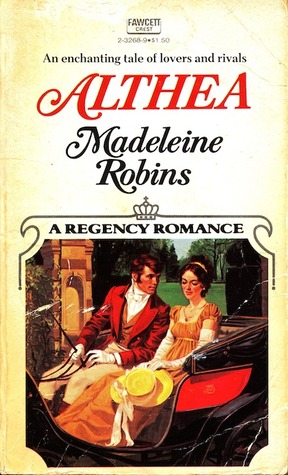 This one was a joy to read. The exchanges between hero and heroine are genuinely witty, both are interesting characters, the side plots are realistic and it’s beautifully written.
This one was a joy to read. The exchanges between hero and heroine are genuinely witty, both are interesting characters, the side plots are realistic and it’s beautifully written.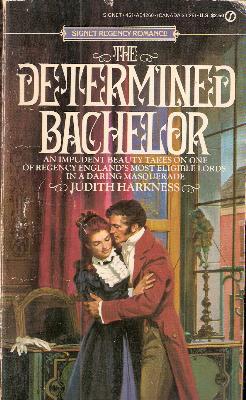 I enjoyed this up to a point, but I found it by far too wordy, with too little actual plot and too much philosophical wrangling.
I enjoyed this up to a point, but I found it by far too wordy, with too little actual plot and too much philosophical wrangling.
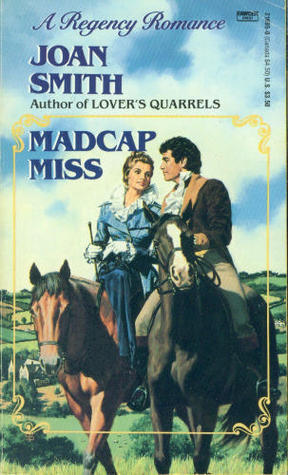 This was a whole heap of fun! I despise plots where the heroine disguises herself as a boy, but this one masquerades as a child, leading to all sorts of entertaining results, like being given warm milk to drink instead of wine, and being expected to play with skipping ropes and dolls! A very original story.
This was a whole heap of fun! I despise plots where the heroine disguises herself as a boy, but this one masquerades as a child, leading to all sorts of entertaining results, like being given warm milk to drink instead of wine, and being expected to play with skipping ropes and dolls! A very original story. An oddly disjointed book, which I found difficult to get into, although I’m not sure why. The hero and heroine were perfectly fine, the romance burbled along nicely and there was a great deal of Regency restraint and propriety on display, which is all estimable. Yet somehow I was unmoved.
An oddly disjointed book, which I found difficult to get into, although I’m not sure why. The hero and heroine were perfectly fine, the romance burbled along nicely and there was a great deal of Regency restraint and propriety on display, which is all estimable. Yet somehow I was unmoved.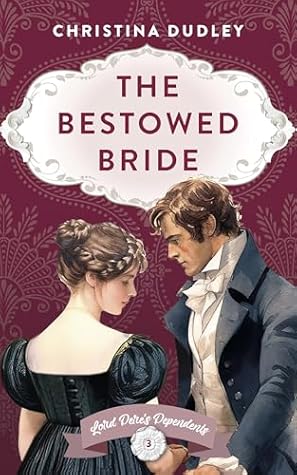 A Christina Dudley book is always a joy to read, that goes without saying, and this one was no different, but it has one major negative about it, which dragged it down to four stars for me.
A Christina Dudley book is always a joy to read, that goes without saying, and this one was no different, but it has one major negative about it, which dragged it down to four stars for me. A fun little novella, which drew me in by the plot device of an arranged marriage with switched brides. I’m always fascinated by the legalities of Regency marriage so I was keen to see how the author would tackle this.
A fun little novella, which drew me in by the plot device of an arranged marriage with switched brides. I’m always fascinated by the legalities of Regency marriage so I was keen to see how the author would tackle this. A strange book, with some very unsettling mood changes, intermingling light-hearted banter with much more serious matters. Very enjoyable, despite that, although I wish the author had lightened the mood somewhat at the end.
A strange book, with some very unsettling mood changes, intermingling light-hearted banter with much more serious matters. Very enjoyable, despite that, although I wish the author had lightened the mood somewhat at the end. A charming tale that’s fairly predictable, but no worse for that. I’m not sure that the rather arm-wavy attitude to war wounds passes muster in this day and age (this book is close to fifty years old!) but I was grateful to be spared too many of the gory details.
A charming tale that’s fairly predictable, but no worse for that. I’m not sure that the rather arm-wavy attitude to war wounds passes muster in this day and age (this book is close to fifty years old!) but I was grateful to be spared too many of the gory details.
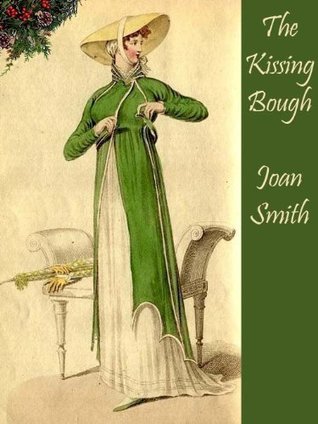 Possibly only a three star in some ways, but I was in the mood to overlook its flaws and just enjoy the romp. Nothing special, in a lot of ways, but a good comfort read.
Possibly only a three star in some ways, but I was in the mood to overlook its flaws and just enjoy the romp. Nothing special, in a lot of ways, but a good comfort read.